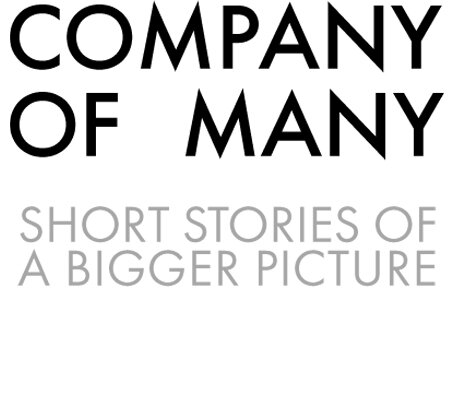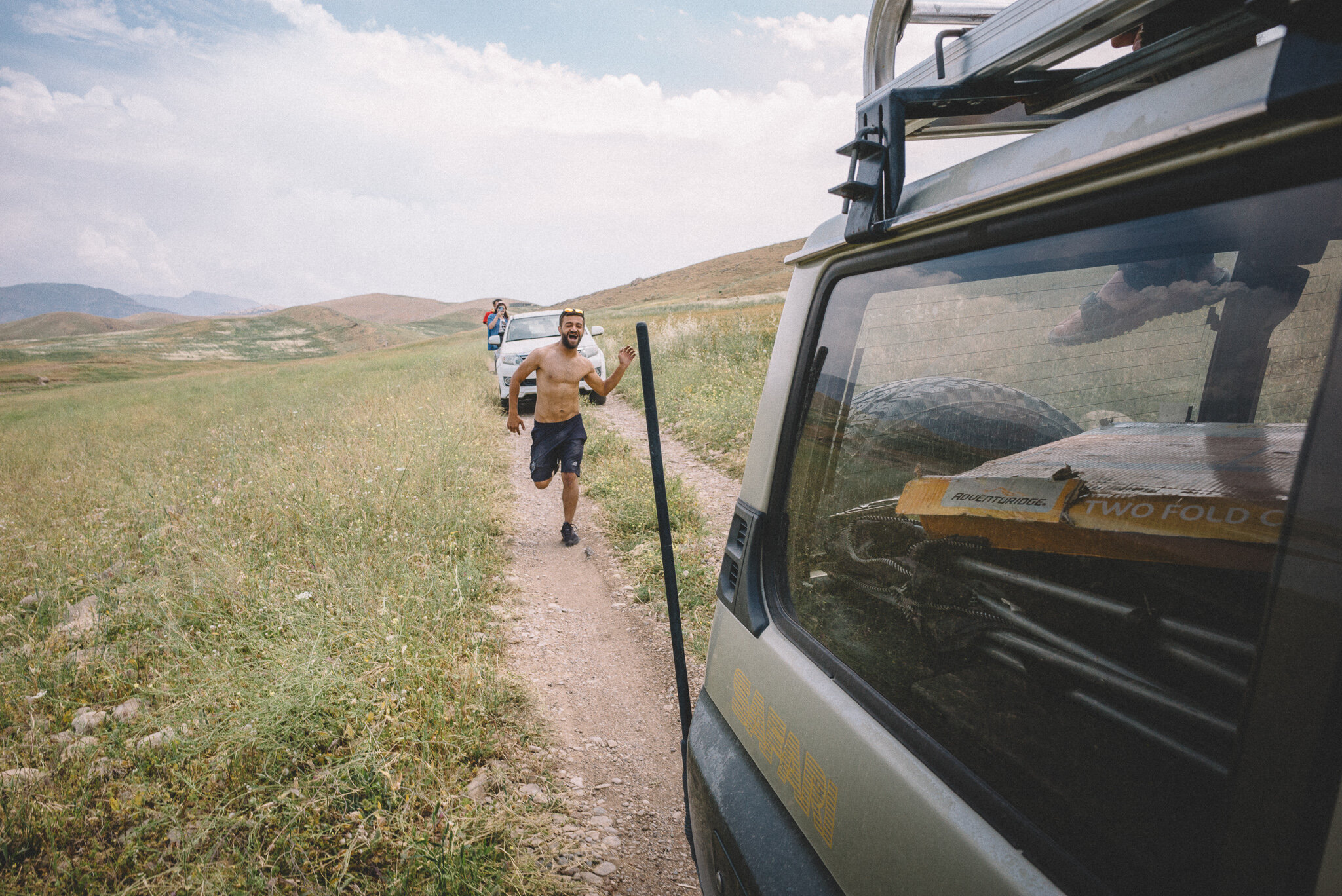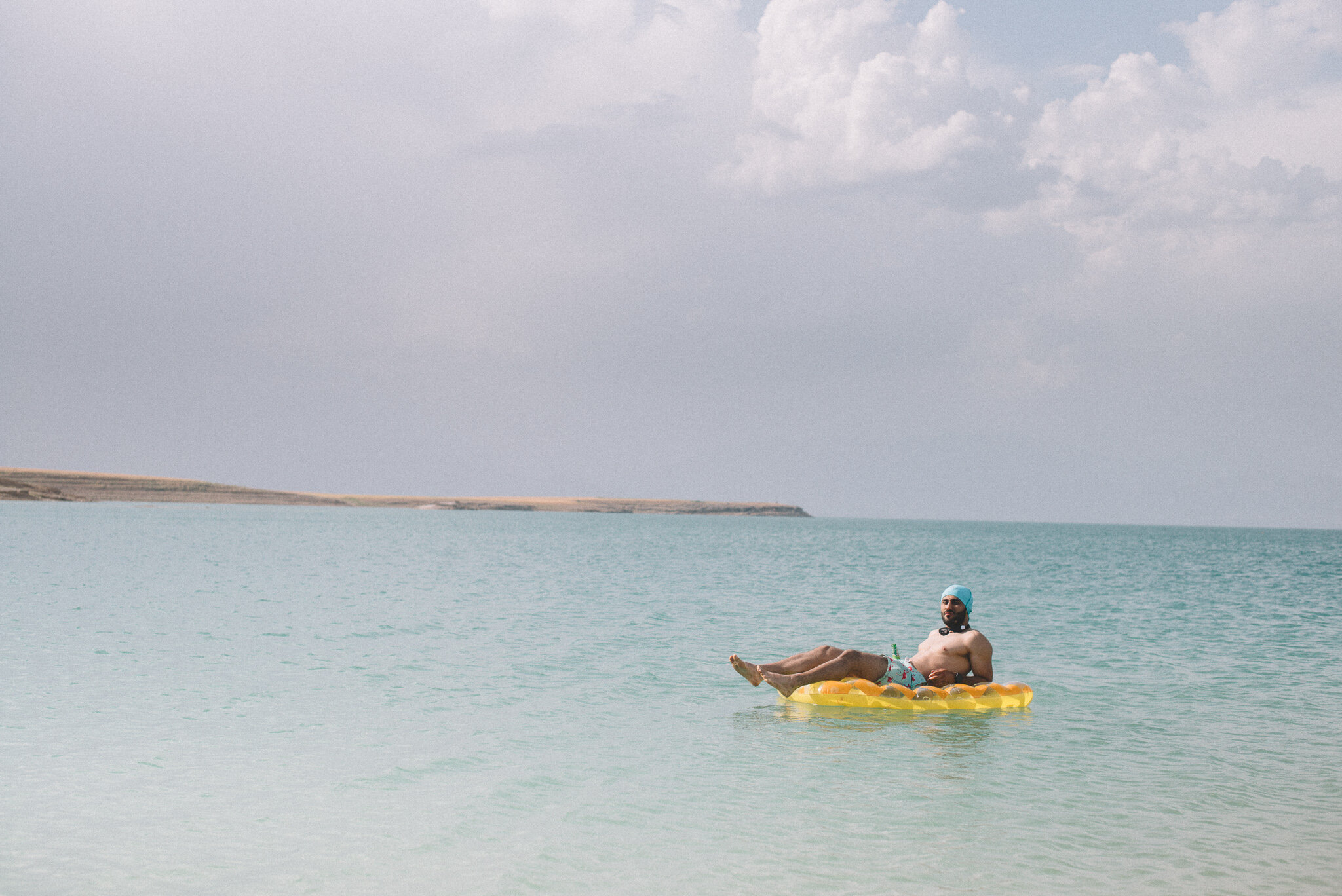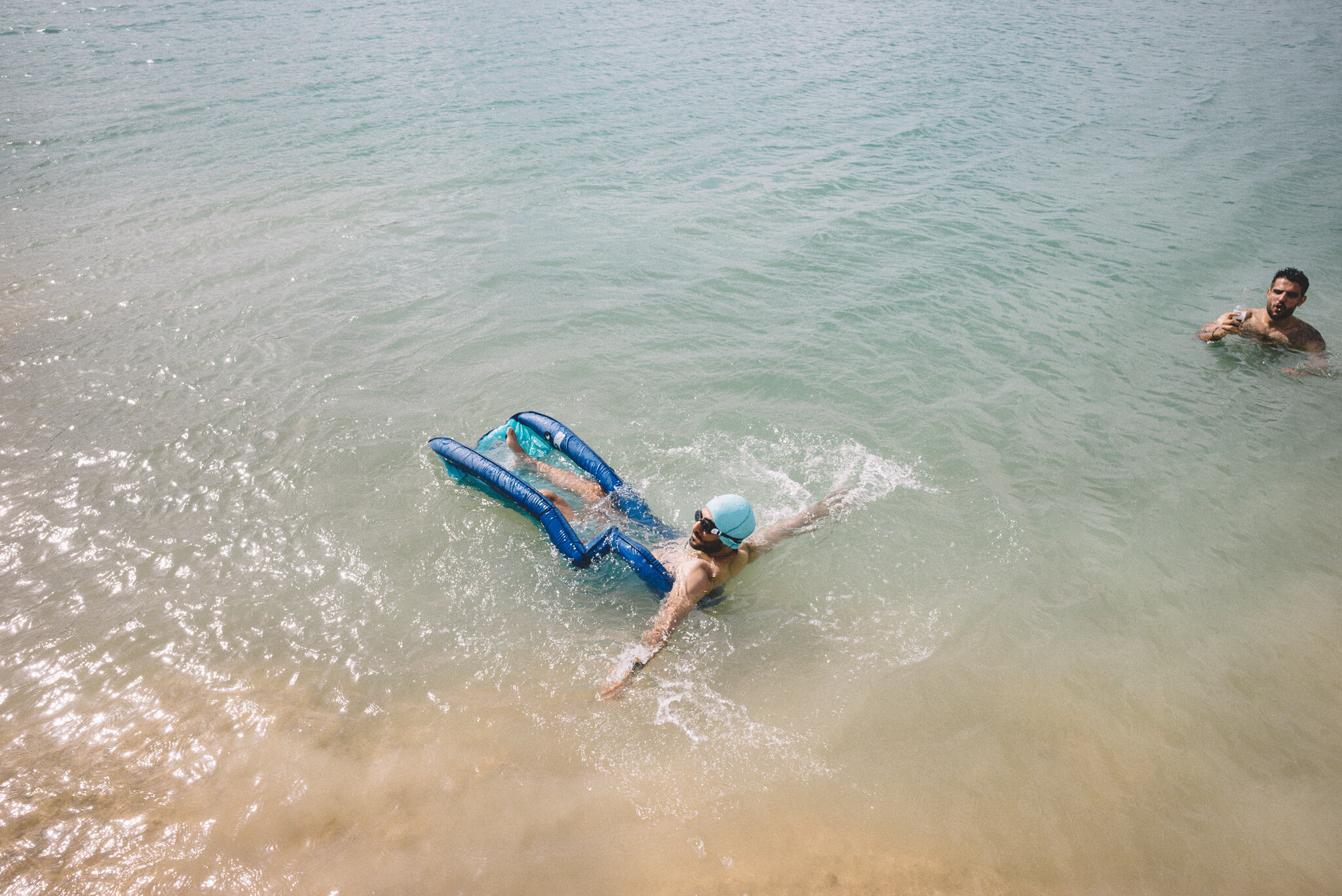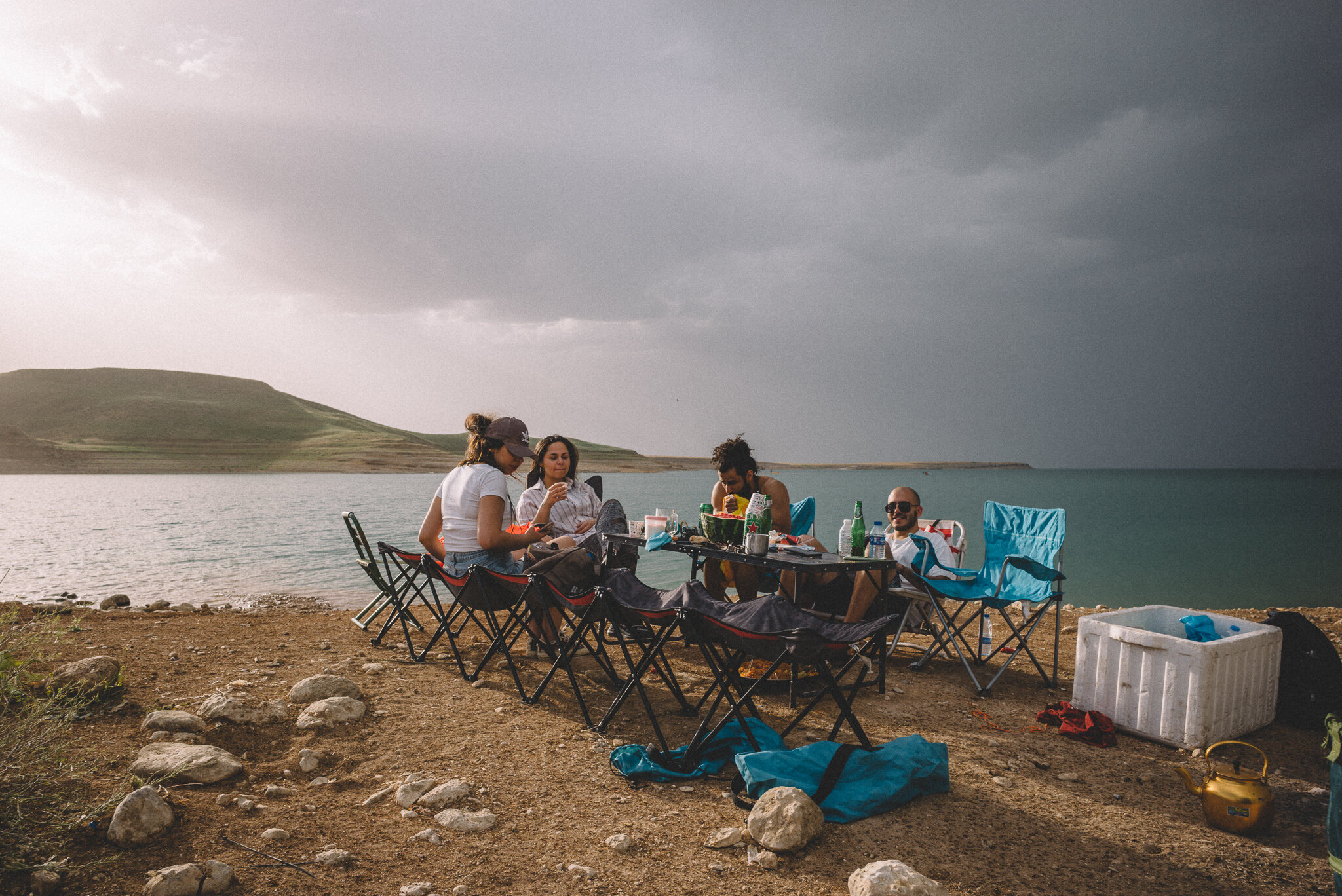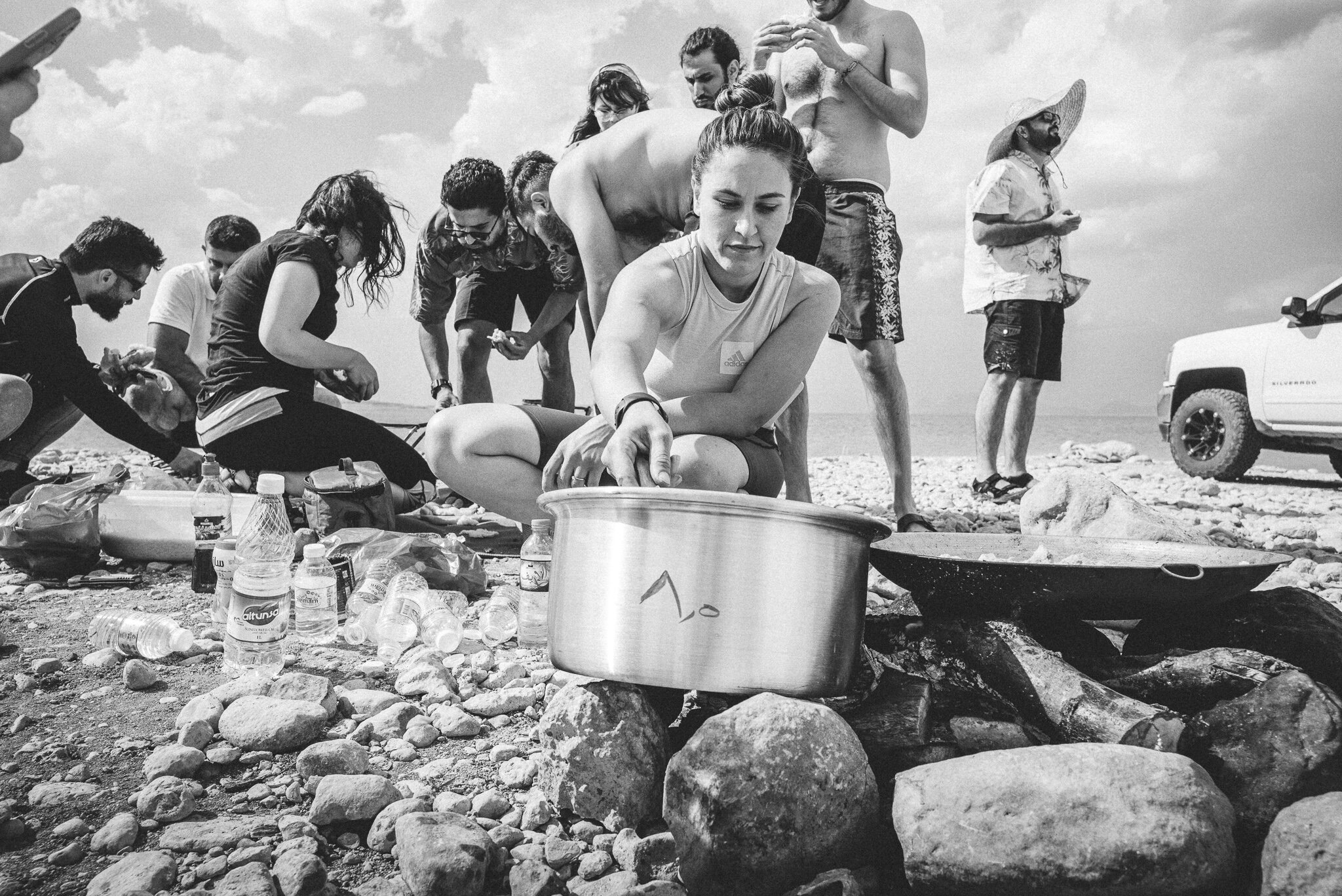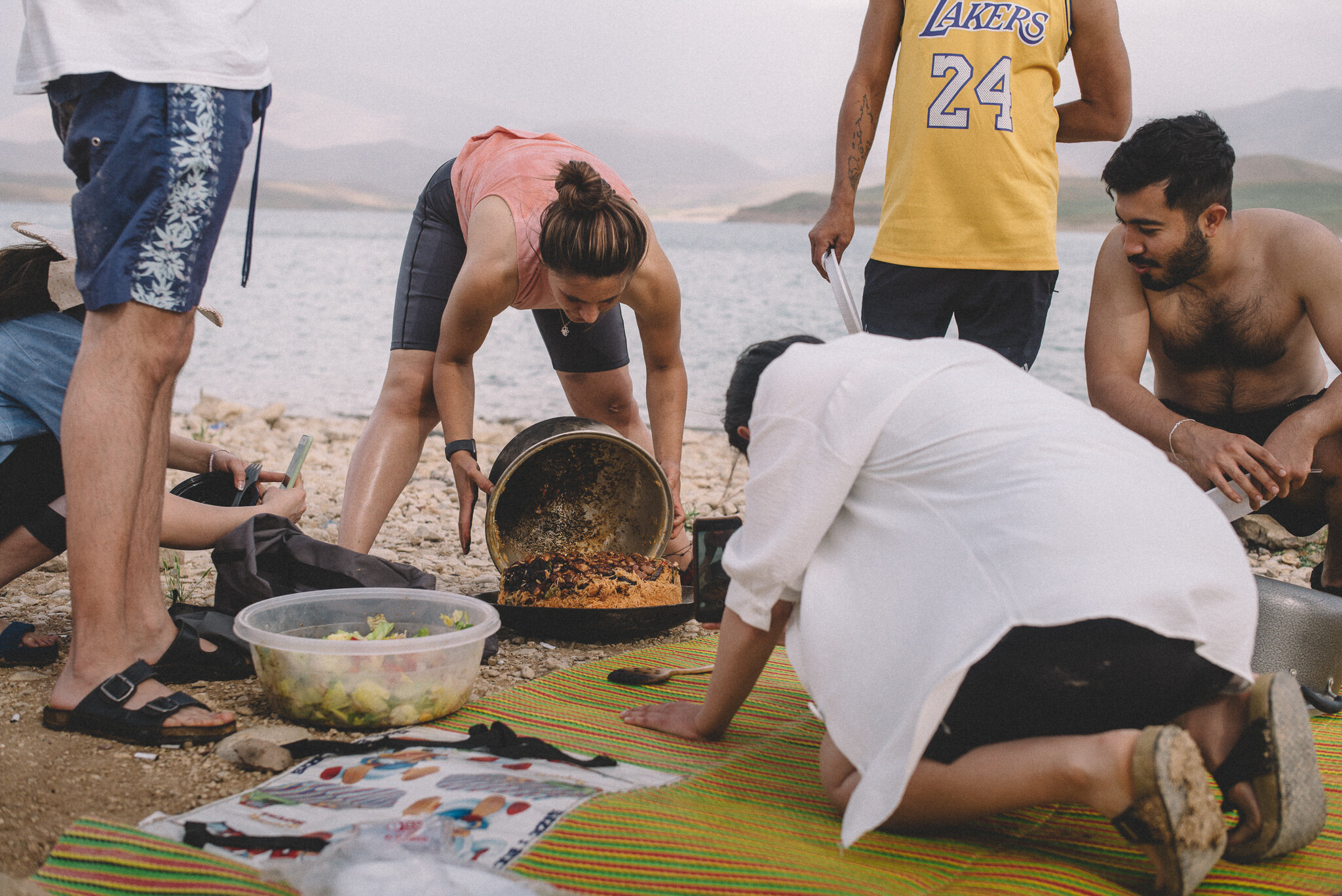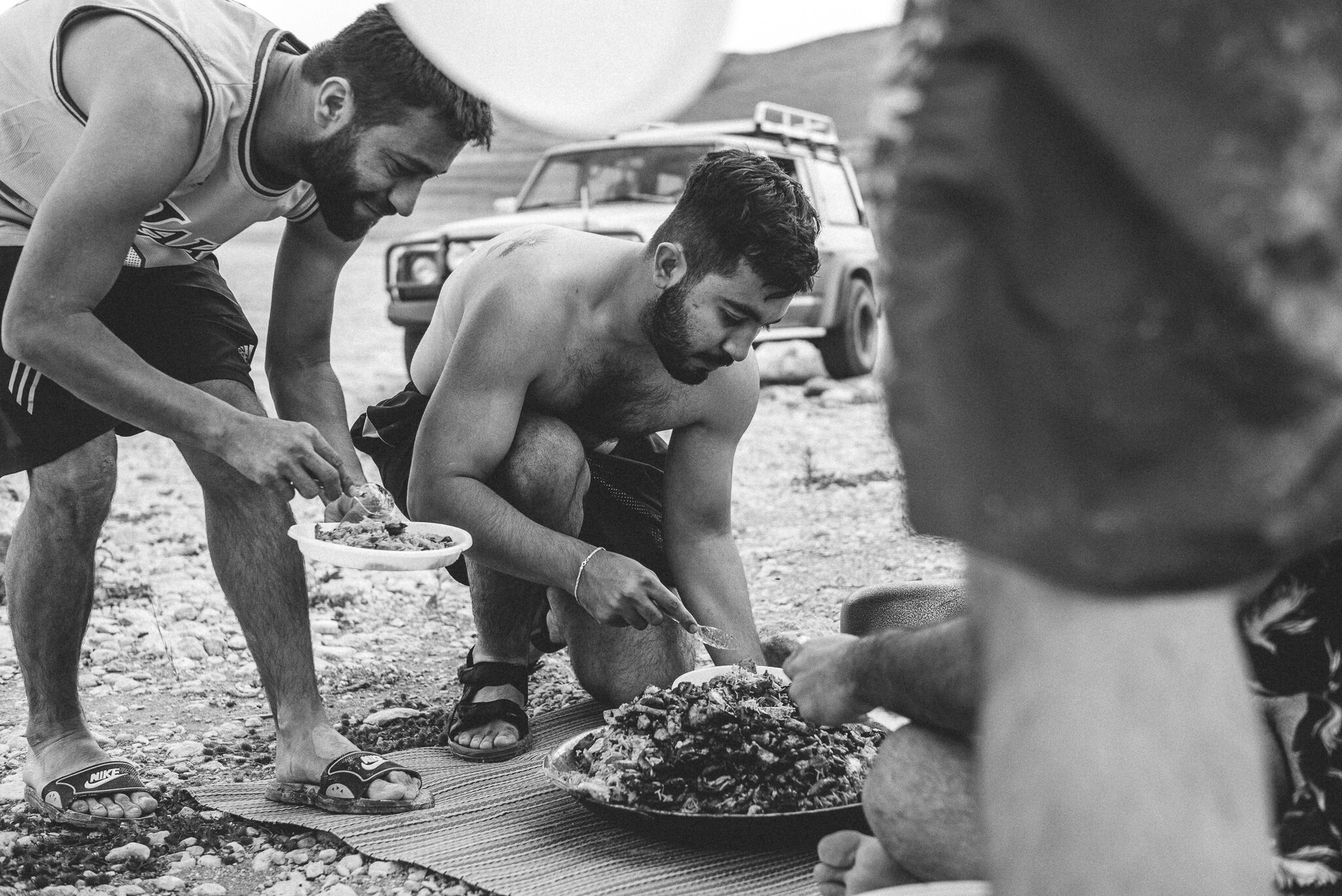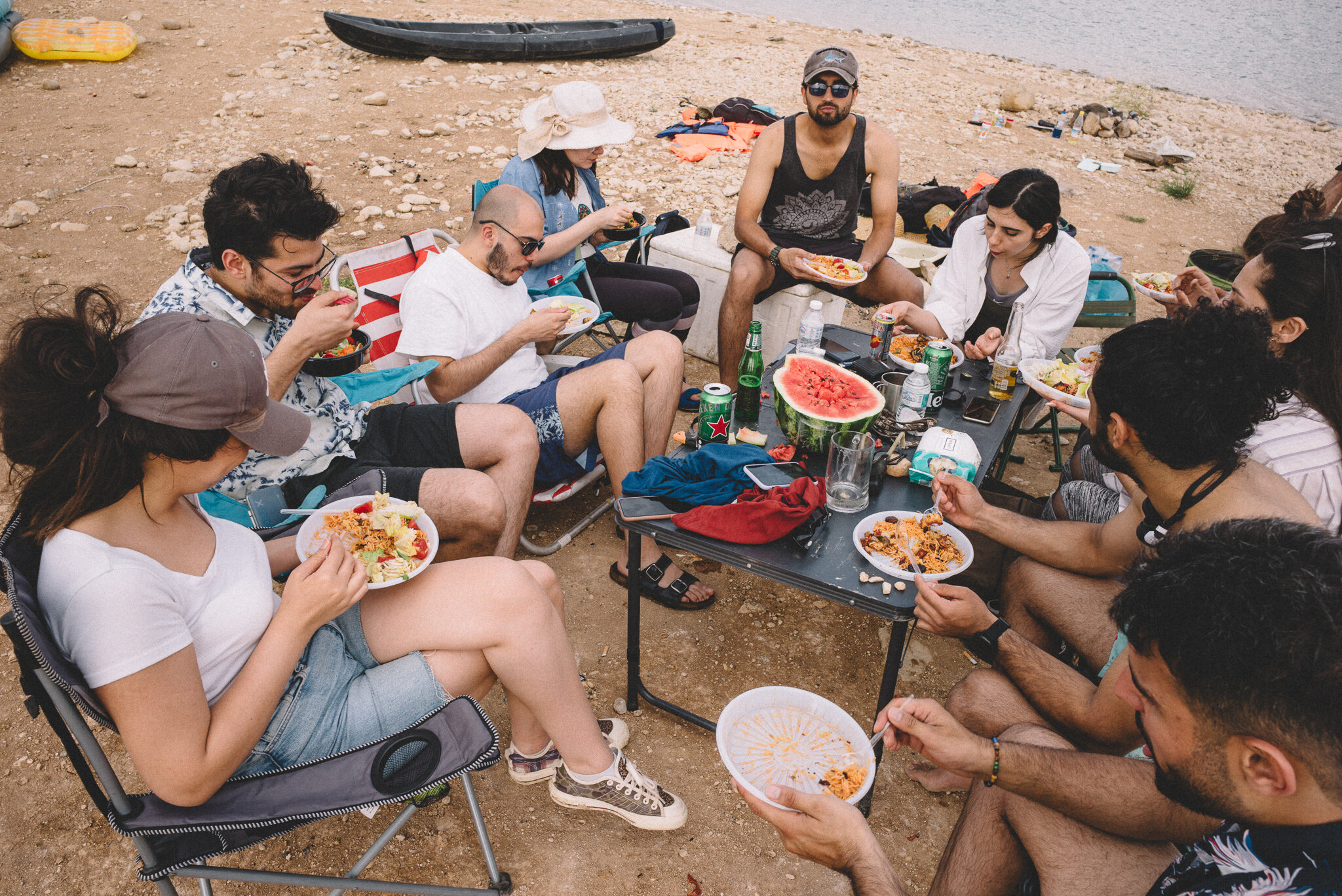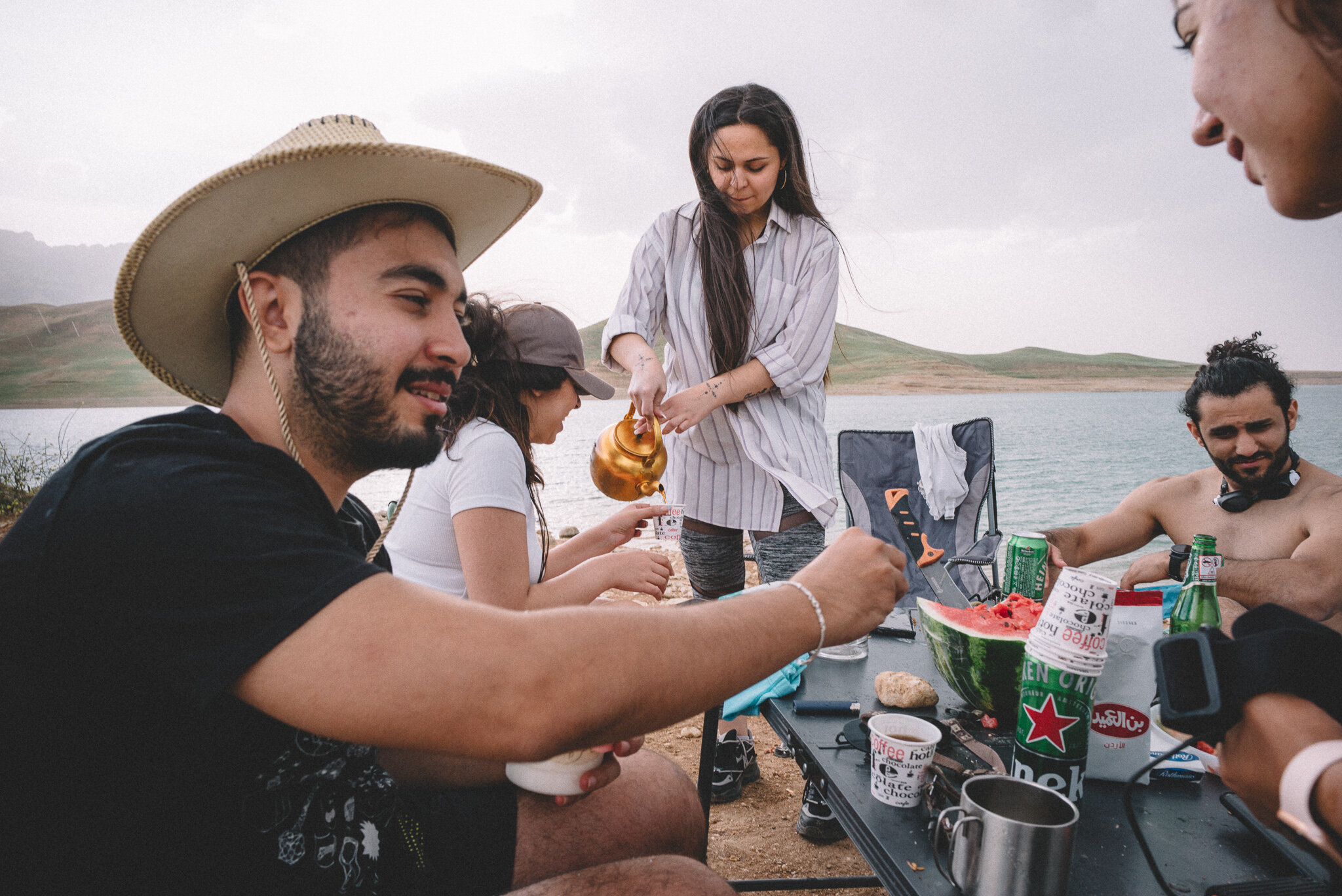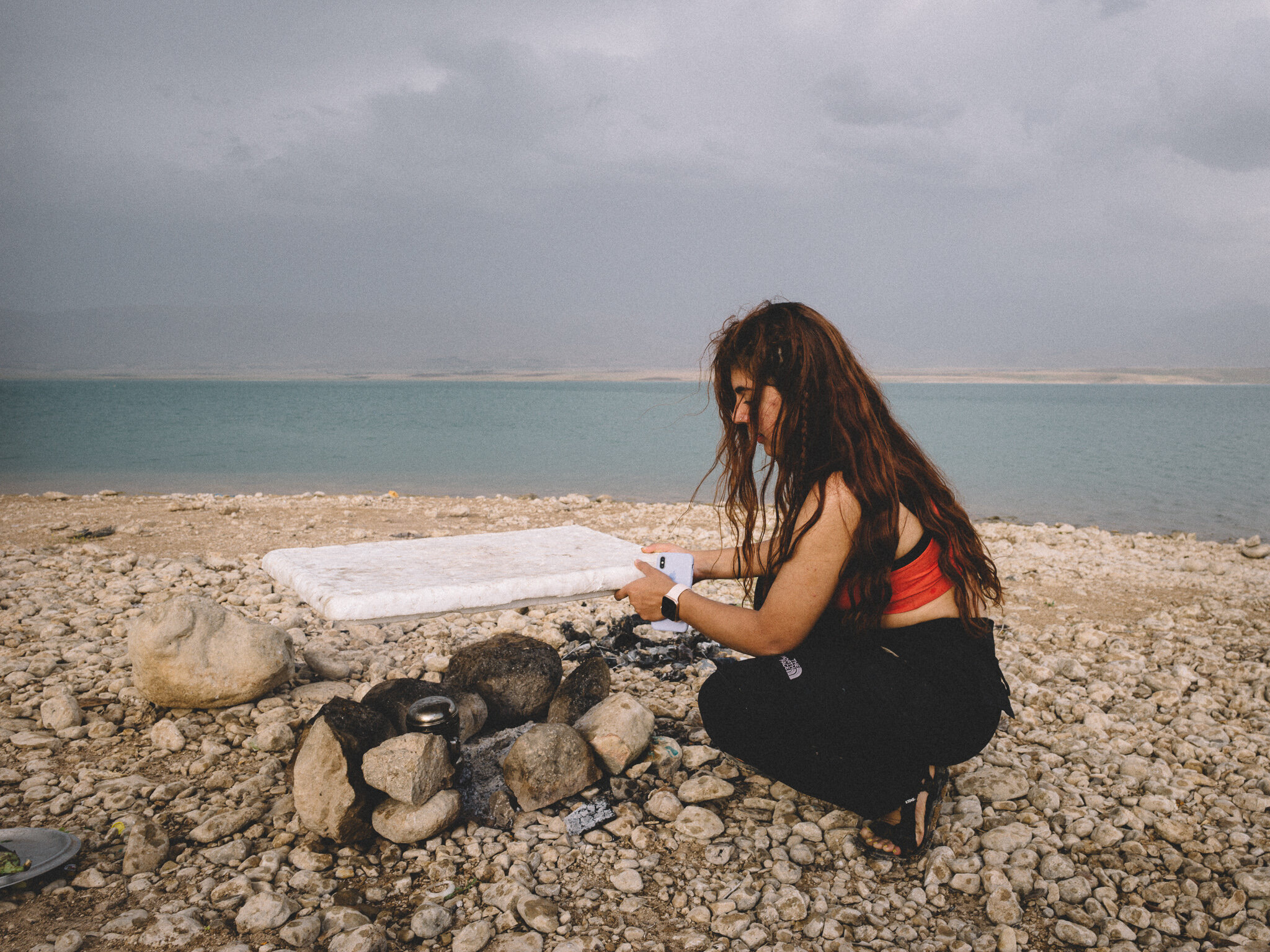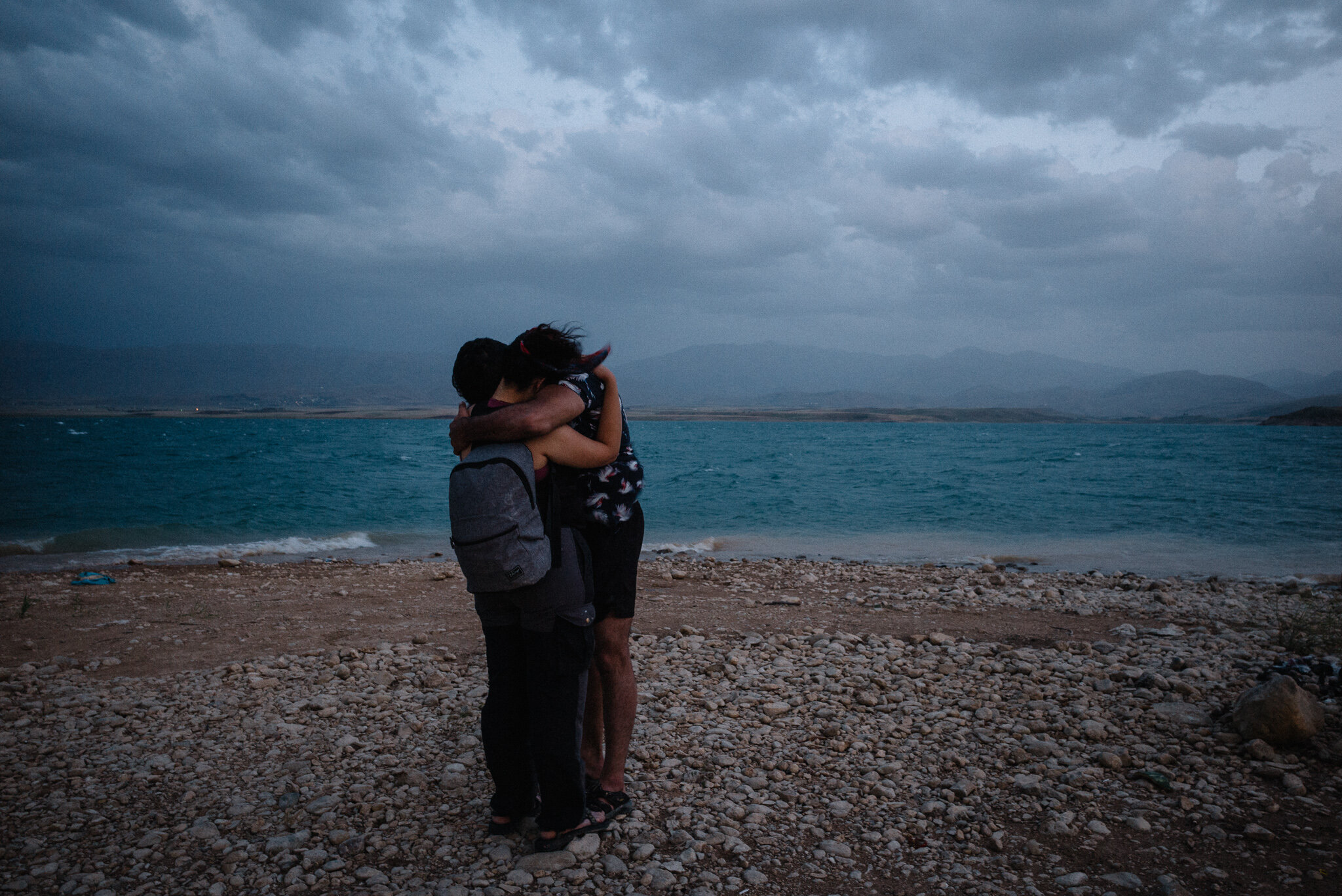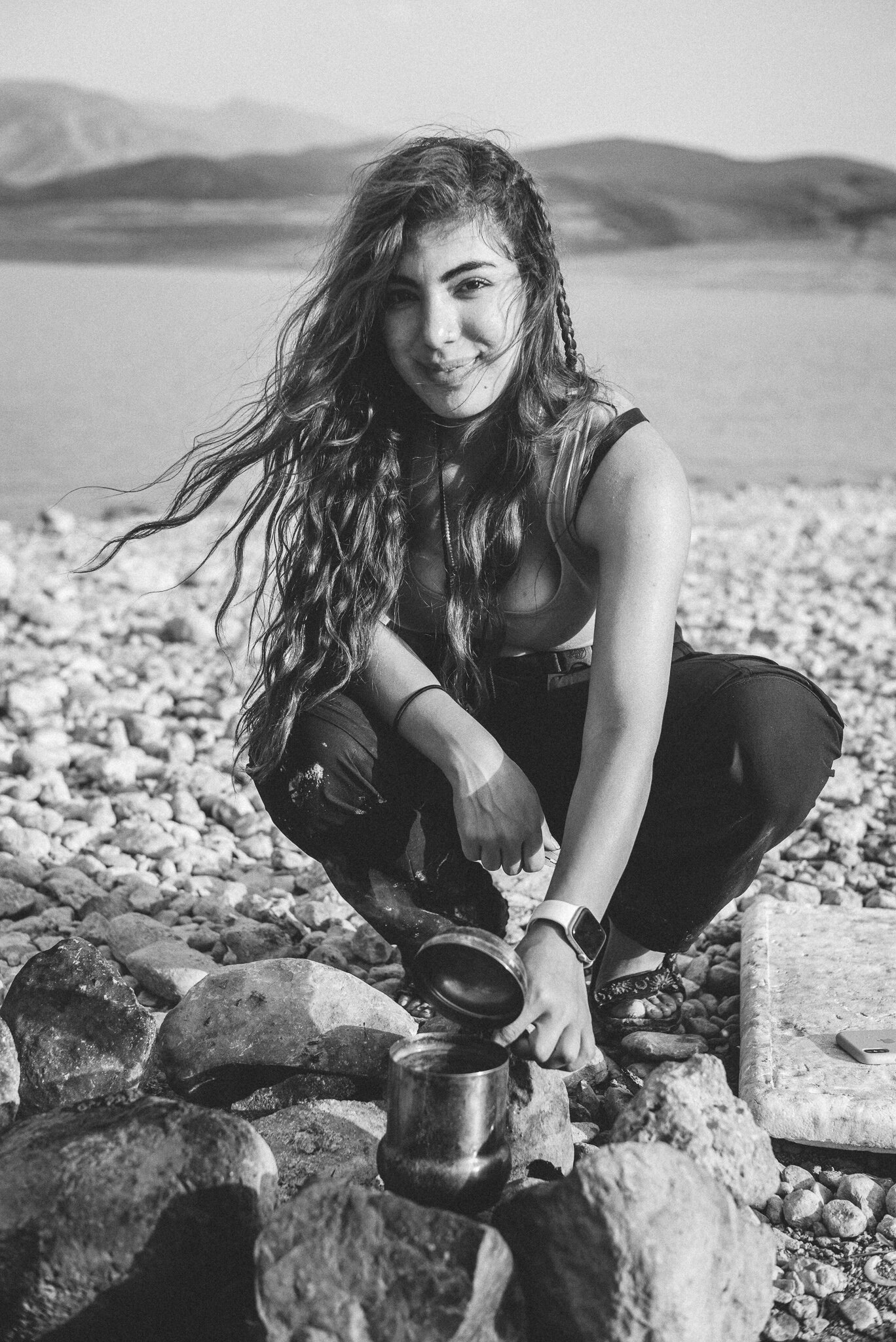Diary notes May 7, 2021
When in doubt: seek an expansive space, the bigger-than-you. Exhale, get in touch with your natural surroundings.
Quintessential instagram-worthy particles of wisdom, those, and not ones I’m prone to take seriously in their pastel-colored cursives. I ascribe to the gist of it, though: to clear the mind, go outside (if you know me, the rhyme makes it true). It’s just that, as Daniel and I have hit a bit of a road block on the trip, it’s quite literally an ACTUAL road-block — on the actual road we are trying to travel. And we already spend so much of the time allotted to us outside, on our quest for stories, that I am in doubt of whether we’ll find the answers to the practical issues that have come up here -- money, organization, fixer…
And yet, I must give it to the feed-crowd: an escape can linger, simply, on the horizon. On the smooth surface of a body of water, the sound of blown-out waves lapping unto the shore.
We are taken to Dukhan Lake from Sulaymaniyah, in true road trip style, by the kind of stylish young people who can casually request your presence at the local coffee corner at an ungodly early hour… to only have departure time be delayed by dog-petting, latte sipping and car division discussions.
Then, a triple stop for water, watermelons, and more breakfast, just outside of town. Finally, a ribbon of vehicles takes us away from the city, into rolling hills. We occupy a Jeep driven by a Jesus-like guy, the slight nestor of the group, who has chosen for a rastafari coloring for his upholstery. He is due to be married in a fortnight - his fiancée is not with us in this total group of about a dozen. We joke about being our chauffeur’s deciples, a ragtag bunch of trotters, as we point ourselves out and the others in the car - for instance, a young woman eager to discuss feminist theories.
There’s five people in this particular car, but two more find their way unto the roof once the vehicles have made their way into the hills. Perched on top of the Jeep they are the first to spot the set of lakes, the water shimmering in the sunlight. We have spent some two hours on the road by now, and the pop songs fuelled drive has made all of us keen to exit the cars again: hooting and hollering and honking the horn, the friends group happily posing for pictures, too. (At some point Daniel hoists himself through the open window to photograph the other people’s limbs protruding in elation. (He has to do so extra gingerly, not because he’s a tall one and possibly slightly more wooden that his subjects, but because he needs both hands to hold his camera tightly. Its lense seems to be functioning badly; one of the practical issues I mentioned earlier.) I hold him by his waist belt. When he folds back inside, his head almost bumping the ceiling as the car bounds over a rocky path, his face is alit. “It’s like a music video out there!”)
As brightly as the sun in shining, there is a breeze chasing whites over Dukhan Lake’s depths. The group has trouble keeping some of the sunshades in place that we hunted down from a street stall several hours earlier. We decide to do away with the white party tent, since we cannot keep its poles erect on the pebbly beach. “We’ll just have to be careful with the cards”, says one of the boys wistfully.
The game is 21, or at least a cards game that closely resembles it. “I think we can best describe it as Kurdish 21. It’s got some of our own rules”, states Saman Ihsan, an American University student and now research assistant. He cheerily confides in us something about “playing the game too often” as he shuffles. (A day later, a free Saturday in the period leading up to Eid that many of the group have begrudgingly reserved for family instead of antics, he will send me a picture of the very same deck in his “little cousins” cousins’ hands. “Time they learned.”)
All day at the lake-side, players are numerous and boisterous. They take each other’s place along the two reet matts that make for this little arena, whenever someone decides to go for a swim, or decides to have a quick chat over tea/beer/fizz. They know one another well, their lives, families. “I know each other person’s tells - in the game, and you know, other areas.... Oh, and we hardly forget. I want my revenge for last week’s game!”
The stakes are high. I’m not a card shark and so I sit on a corner of the towel, peeking over their shoulders as screams of delight or schadenfreude erupt.
The escapist quality of a day at the water is lifting our spirits as we decide to go along with this time off. At the same time we are both struck by the social wom-hole that this group seem to provide - to each other and us, total strangers. We’re graciously offered food and drink - the hospitality we’ve encountered numerous times now, in so many more places in the region. But mostly, we can do as we please, talk as we want, in an atmosphere that reminds me of those first days of rushing, of university without the classes or expectations. Lake Dukhan is like taking a break, as these kids break with traditional norms, and in the Ramadan no less. Ihsan and our driver-Jesus nod. “We’ve introduced you into a little bit of a bubble. You know, we are privileged bunch, with studies abroad, or having grown up outside of Kurdistan. We’ve grown towards each other - a bubble of our own choosing. For some of the people that join us on outings like this one, that can be a bit scary at first. The notion of what kind of expectations might be there” -- a vague gesture towards the metropole we left this morning -- “I think we are always made very aware of that. But that is why going outside of the city, at least this once every week, has become such an important part of what our friend group does.”
